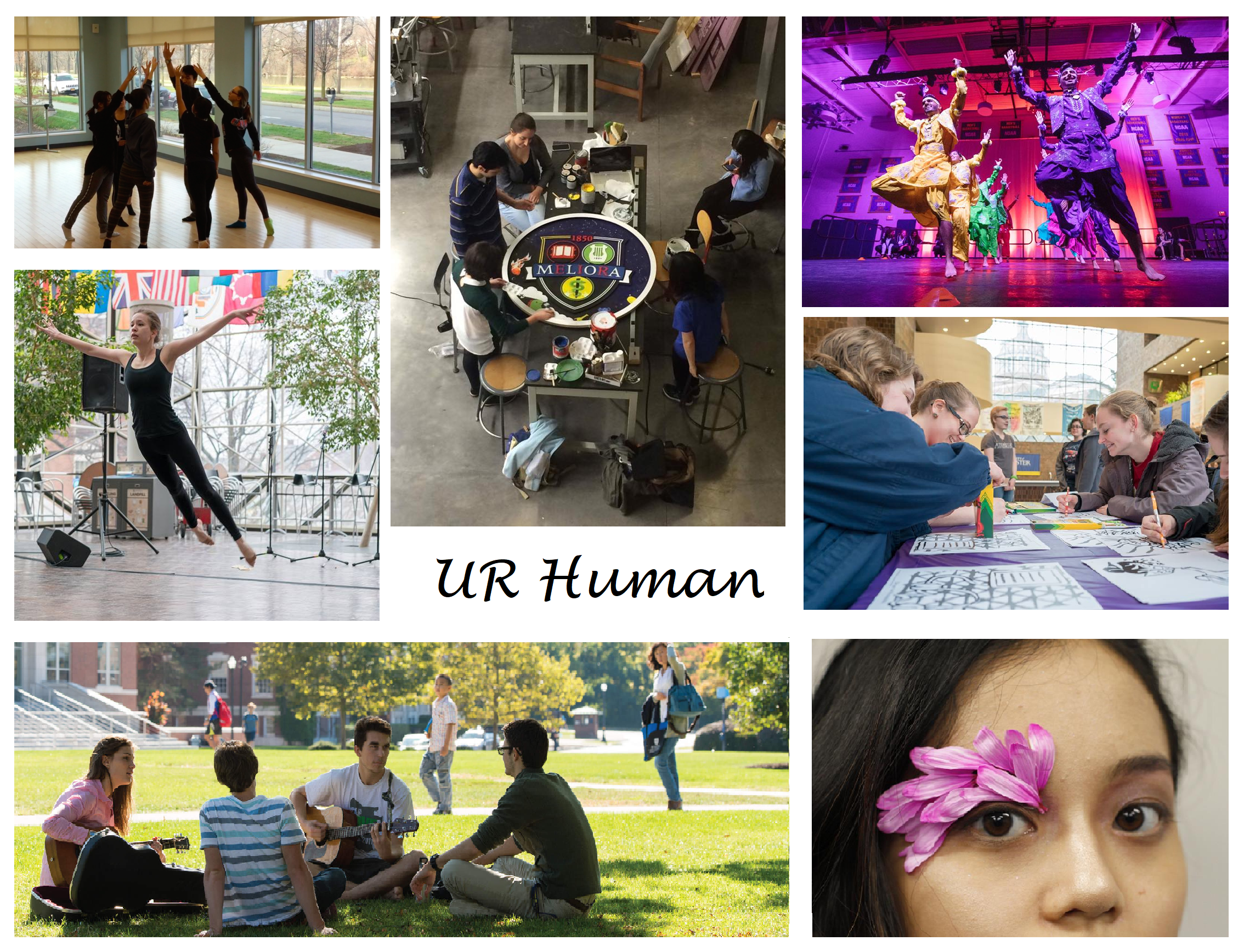by Sara Kowalski, Class of 2017, Humanities Fellow
Let’s talk about the humanities. And let’s start with the question most of us probably take for granted: What are “the humanities?”
Hi! My name is Sara, and I’m the Humanities Fellow here at the University of Rochester. Throughout this academic year, I’ll be blogging and posting on social media about information and opportunities in the humanities at our University. Follow this blog and @URAdmissions on Facebook, Instagram, and Twitter if you’d like to hear more from me about the humanities at Rochester! And keep a look out for the hashtags #URHuman, #HumanitiesHighlight, #StudentSpotlight, and #AlumniSpotlight.
It encompasses the studies of language, linguistics, history, philosophy, archaeology, religion, ethics, anthropology, music, literature, dance, and of course, art of all kinds. Those familiar with the Rochester curriculum know that some of these subjects, such as linguistics and history, are considered social sciences here. That’s because there is a very blurry line between the humanities and the “humanistic” social sciences. In fact, one possible definition for the humanities is anything that involves “humanistic content and methods” at all.
So, let’s take a look at that term—”humanistic.” According to your regular ol’ online dictionary, it means “relating to human affairs, nature, welfare, or values.” In other words, to study the humanities is to study being human. And isn’t that something we should all strive to understand—what it means to be ourselves and our fellow human beings? Despite the general stigma against the humanities, I’ve never heard anyone say “Human affairs just aren’t my thing.” After all, we’re all humans living in a human world.
However, as we all know, many people consider the humanities trivial, non-serious, non-essential. Perhaps it’s always been this way. I wonder if the thousands-of-years-old pottery we marvel at in museums were crafted by rebellious individuals who insisted on perfecting their technique while ignoring their family and friends constantly telling them to get a real job and go thresh wheat. I wonder if the ancient writings we strive to preserve were marked down by determined individuals who ignored everyone else telling them no one would ever read it.
For many individuals, pursuing a field in the humanities means ignoring what other people may think and deciding to do what they love, to explore what fascinates them, and to create for the sake of creating. I believe there is so much vibrancy and dignity to being a part of that tradition.
Now, before I sign off, I’d like to leave you with a big list of the undergraduate departments and programs in the humanities and humanistic social sciences! I’ve linked in all the department pages for easy navigation if you’d like to learn more:
- African & African American Studies
- American Sign Language (ASL)
- American Studies
- Archaeology, Technology, and Historical Structures (ATHS)
- Art & Art History
- Anthropology
- Dance & Movement
- Digital Media Studies (DMS)
- East Asian Studies
- English
- Film & Media Studies
- Gender, Sexuality & Women’s Studies
- History
- International Theater Program
- Linguistics
- Literary Translation Studies
- Medieval & Early Modern Studies
- Modern Languages and Cultures
- Music
- Philosophy
- Psychology
- Public Health
- Religion & Classics
That sure is a lot! As a research University, Rochester has a lot going on academically and beyond. Not to mention the roughly three-hundred student organizations. Opportunities abound, and I bet you don’t even know about half of them. So stay tuned!


